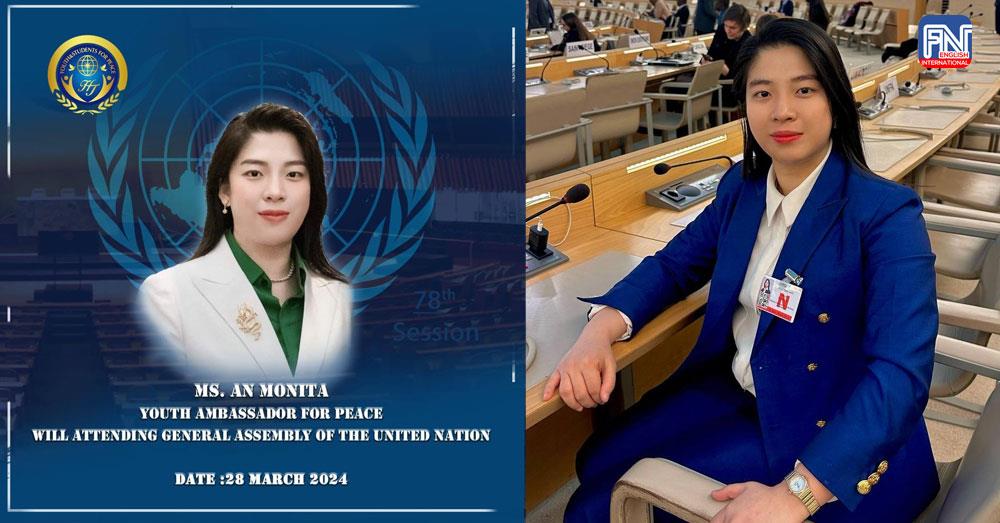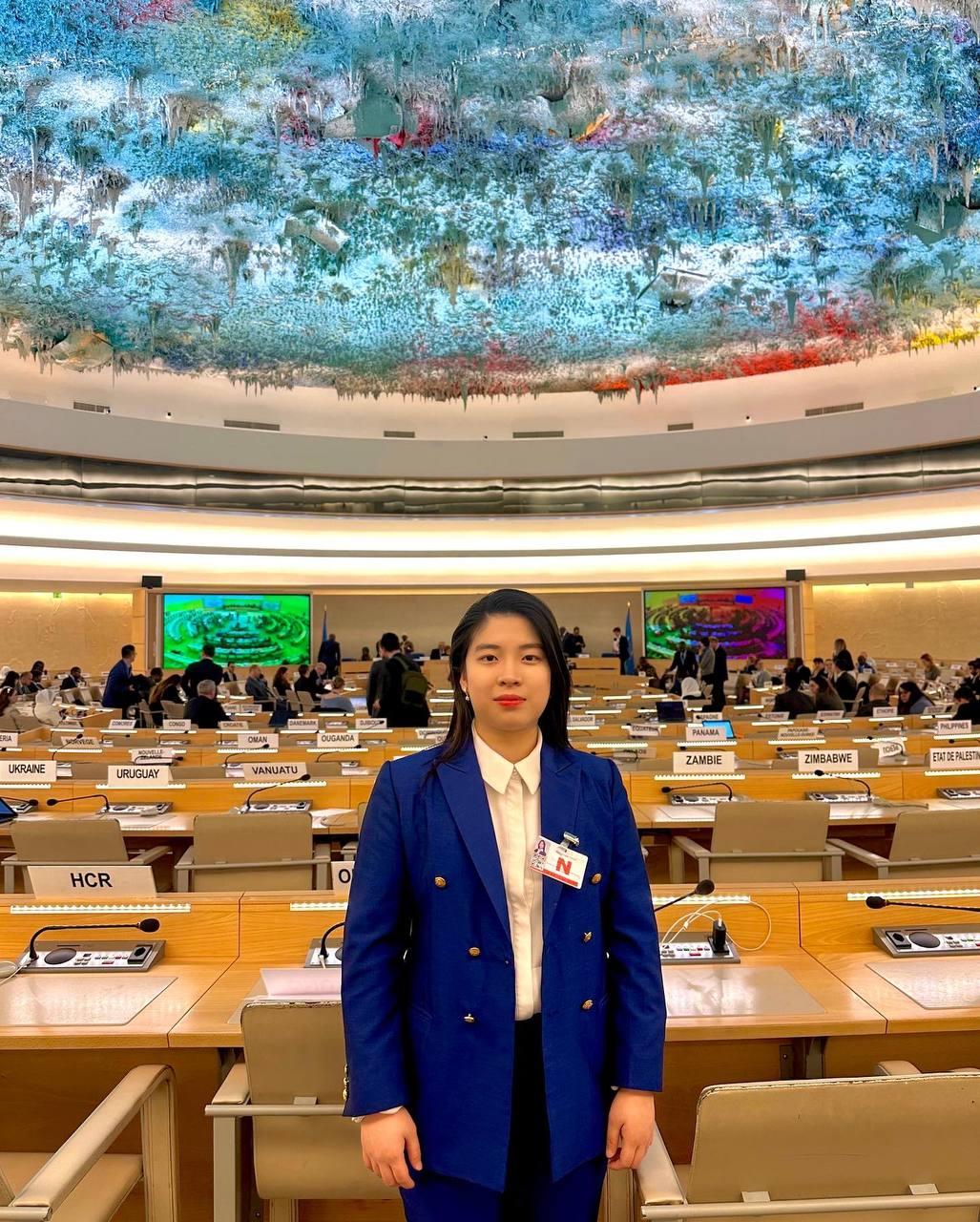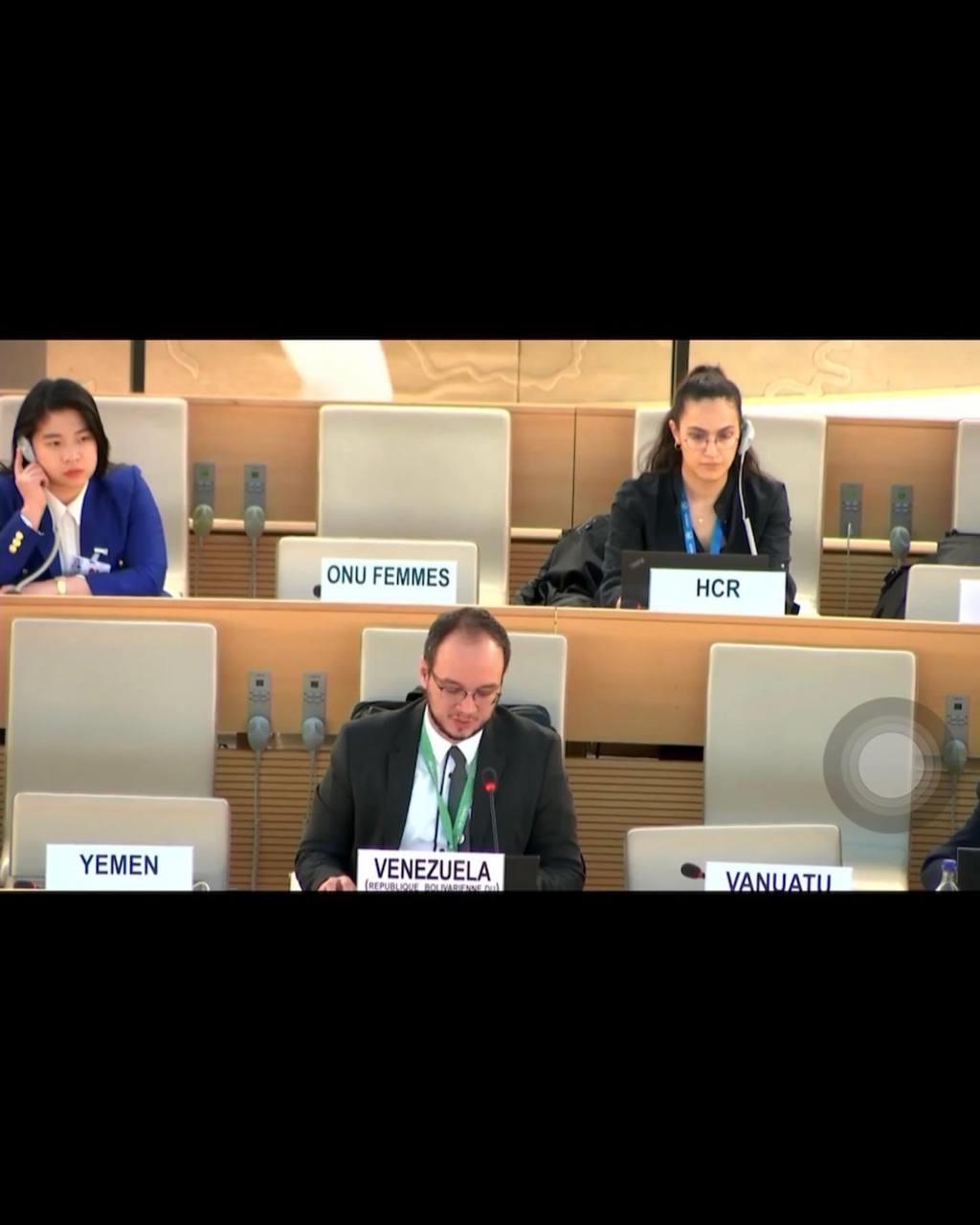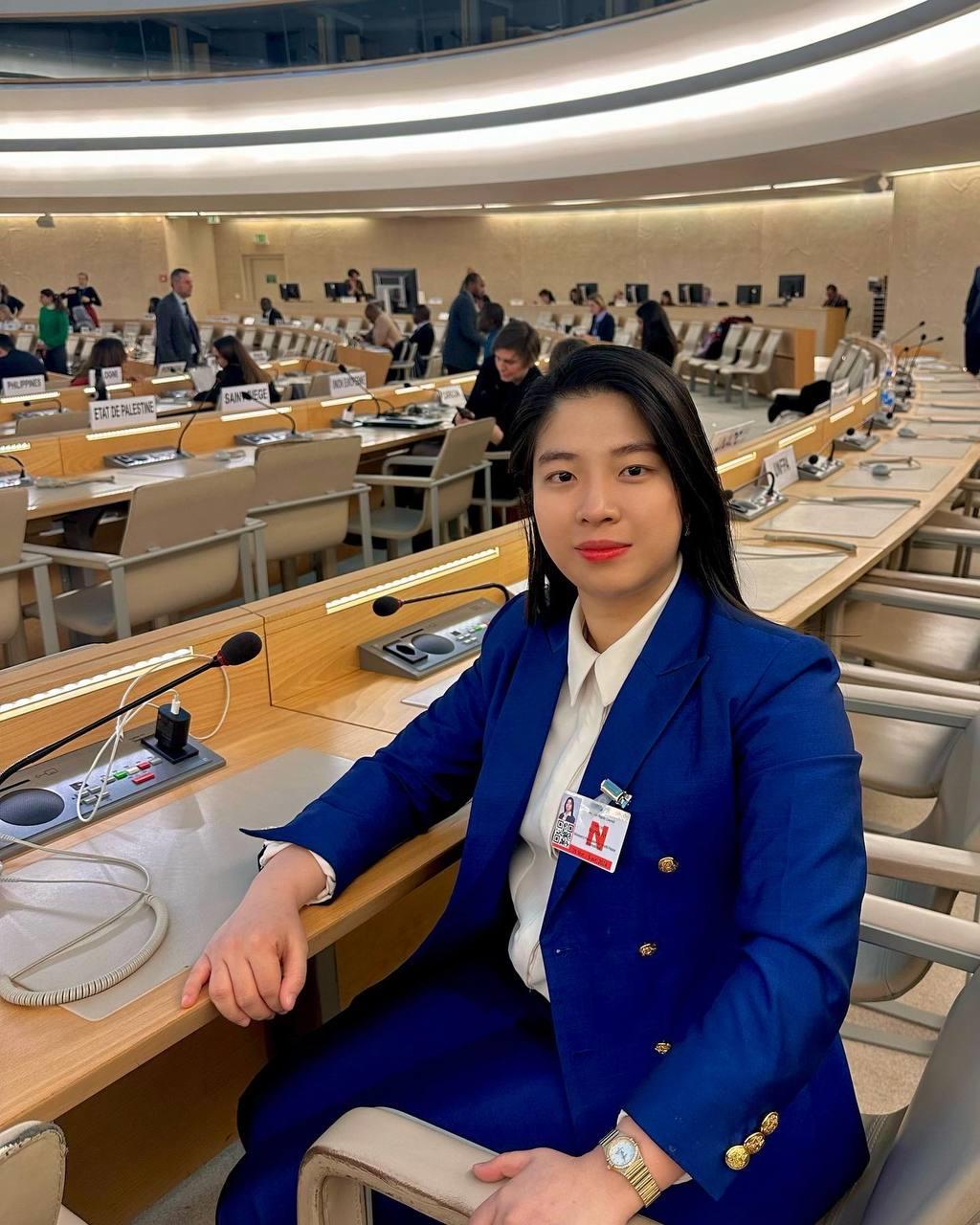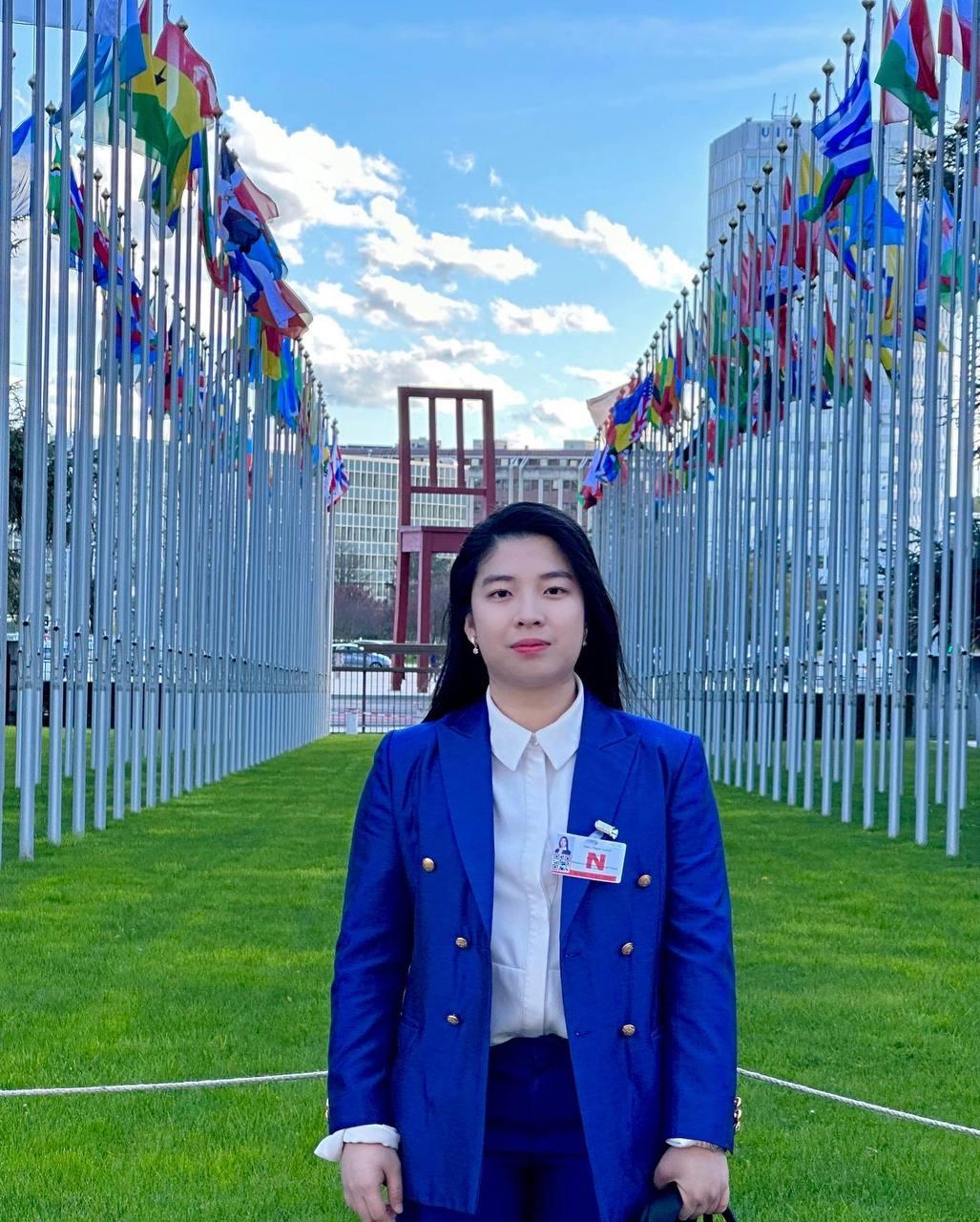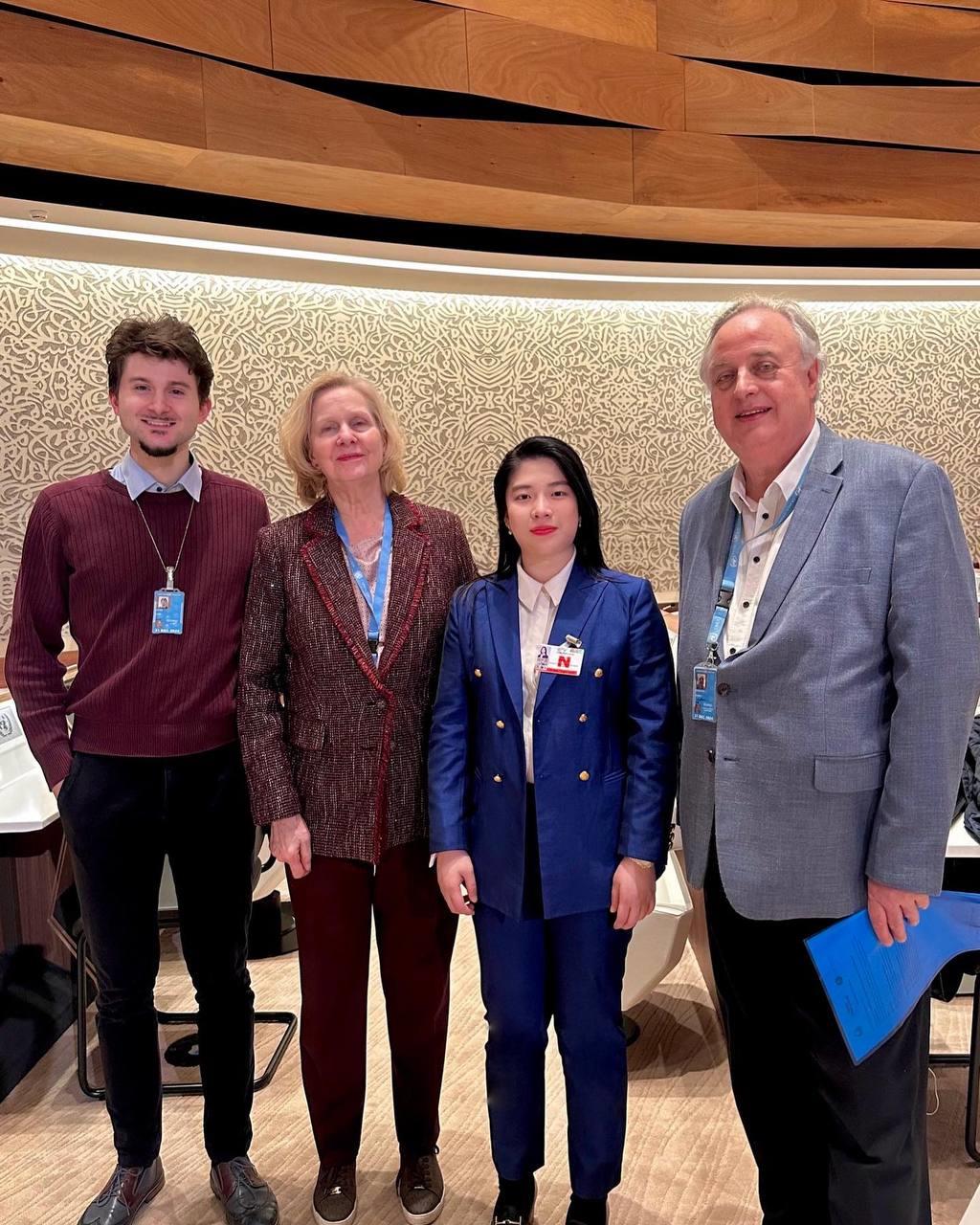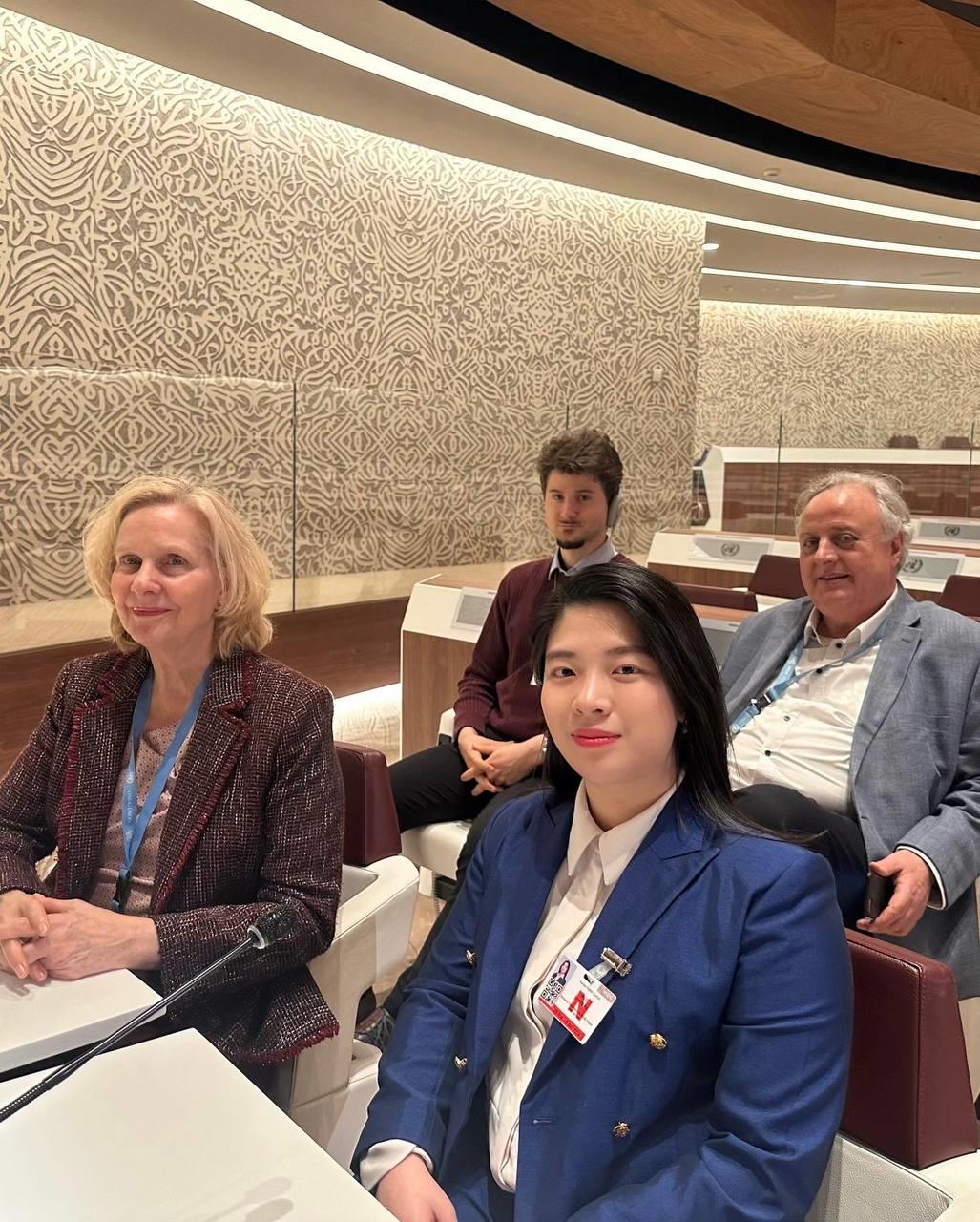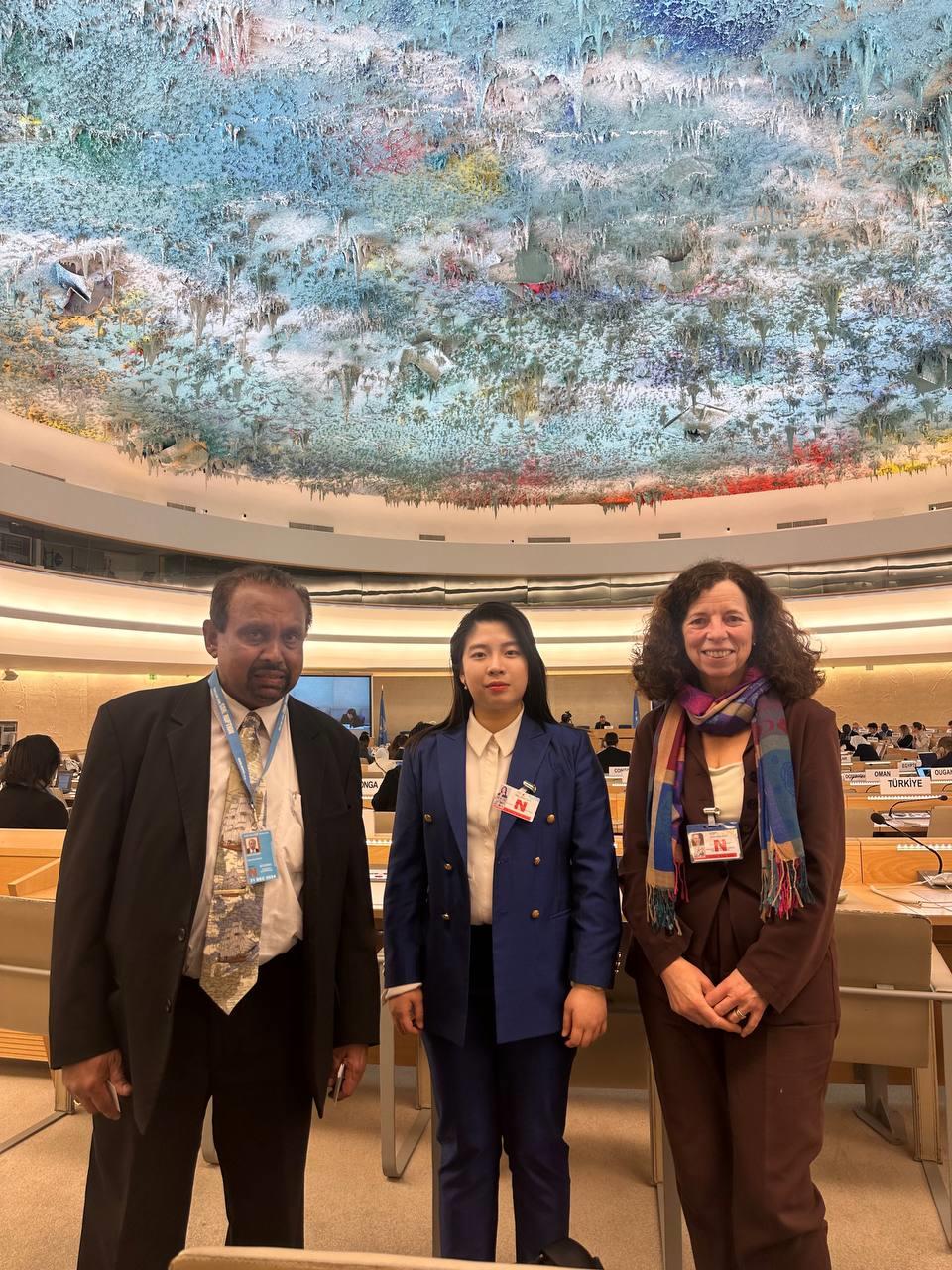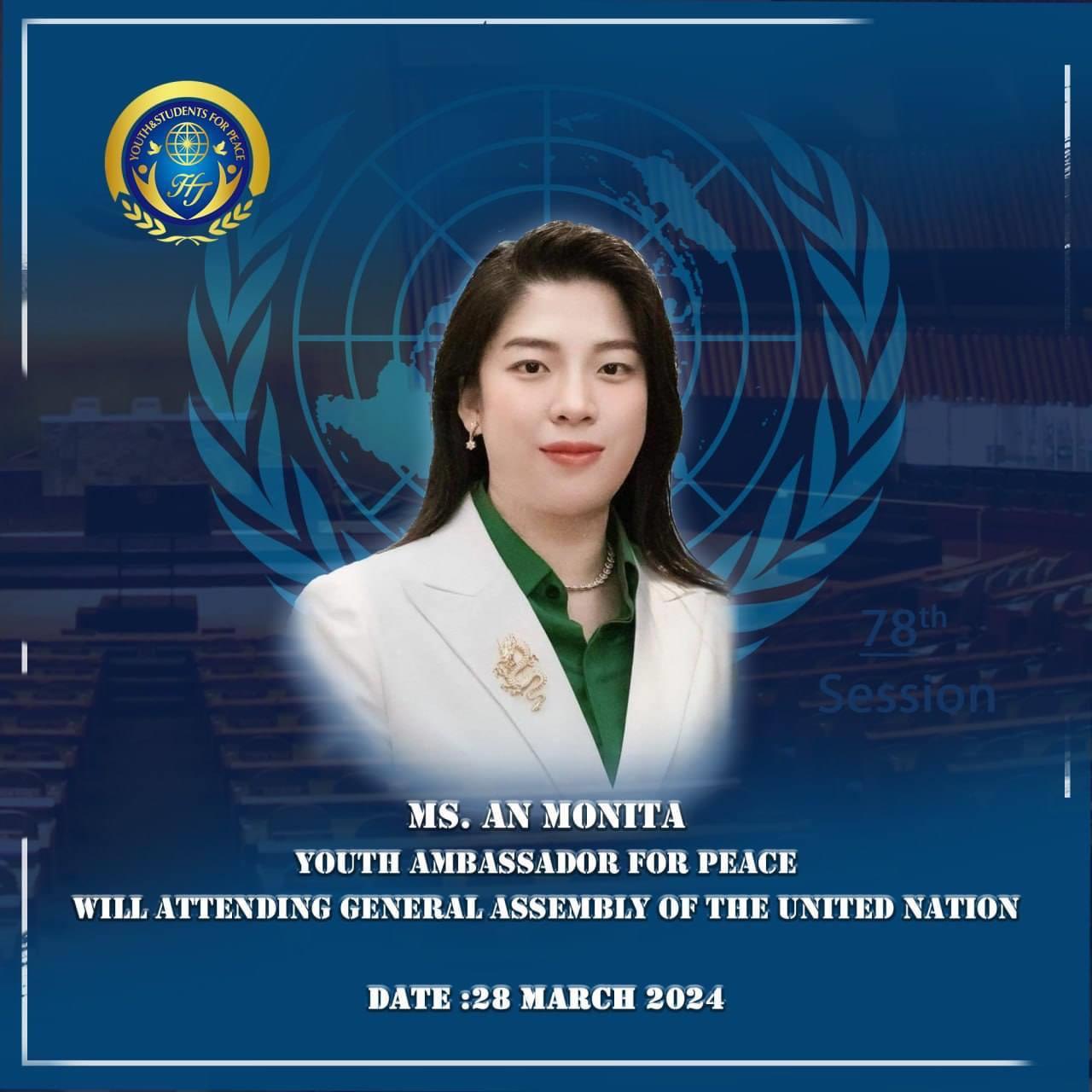Phnom Penh (FN), Mar. 30 – As the world convenes to follow up on and implement the Durban Declaration and Programme of Action, the inclusion of youth ambassadors for peace stands as a crucial element in combating racism, racial discrimination, xenophobia, and related forms of intolerance.
The perspectives and contributions of young leaders in this global discourse not only enrich the dialogue but also ensure the sustainability and relevance of the initiatives set forth by this seminal declaration.
Monita An, a distinguished young leader from Cambodia and a Youth Ambassador for Peace told Fresh News that: “Youth ambassadors for peace embody the progressive spirit and the transformative potential that is necessary to challenge the status quo and foster societies that celebrate diversity and inclusivity”.
Here are several compelling reasons why selecting a youth ambassador for peace is imperative for the success of the Human Rights Council meeting:
1. Bridging Generational Gaps:
Youth ambassadors serve as a bridge between generations, bringing fresh perspectives to longstanding issues. They can effectively communicate the concerns and aspirations of younger populations to policymakers, ensuring that the voices of the future are not only heard but are integral to shaping the world they will inherit.
2. Championing Innovation:
Young people are often at the forefront of technological and social innovation. As a youth ambassador for peace, one can introduce new ideas and approaches for tackling racial discrimination, leveraging digital platforms for advocacy, and creating impactful campaigns that resonate with a global audience.
3. Mobilizing Peers:
Youth have a unique ability to mobilize their peers and inspire collective action. A youth ambassador can galvanize a network of young activists and change-makers, creating a powerful movement that supports the implementation of the Durban Declaration and Programme of Action at a grassroots level.
4. Living Testimonies of Diversity:
In many cases, young people are living examples of the harmonious blending of diverse cultural, racial, and ethnic backgrounds. As a youth ambassador, one can share personal stories and experiences that highlight the richness of diversity and the destructive nature of intolerance, serving as a testament to the potential of inclusive societies.
5. Pioneers of Cultural Exchange:
Youth are often more open to and adept at engaging in cultural exchanges. As an ambassador, one can facilitate dialogues that promote understanding and respect among different communities, thereby dismantling prejudices and stereotypes that fuel racism and xenophobia.
6. Commitment to Human Rights Education:
Education is a critical tool in combating discrimination. Youth ambassadors can advocate for and participate in educational programs that foster a thorough understanding of human rights, equipping young people with the knowledge to challenge injustice and promote peace.
7. Advocates for Policy Change:
Youth ambassadors are not just passive participants but active advocates for policy change. With a seat at the table during the Human Rights Council meeting, a youth ambassador can influence decision-making processes and contribute to the development of policies that address the root causes of intolerance and discrimination.
8. Symbolism of Hope and Progress:
The presence of a youth ambassador for peace is a powerful symbol of hope and the commitment to progress. It demonstrates a collective belief in the potential of the next generation to overcome the challenges of racism and xenophobia and to build a more just and peaceful world.
In conclusion, the appointment of a youth ambassador for peace in the Human Rights Council meeting is not a mere formality; it is a strategic and necessary decision. It ensures that the process of following up on and implementing the Durban Declaration and Programme of Action is inclusive, forward-thinking, and effective.
The unique qualities and capabilities that young people bring to the table are indispensable in creating a global society that upholds the dignity and worth of every human being, free from the scourges of racism and intolerance.
Youth Ambassador for Peace, Ms. An Monita, represented Cambodia at the 55th session of human rights council meeting in Geneva on March 28th.
Ms. Monita, a champion for peace and human rights, joined discussions focused on racism, racial discrimination, and building a more tolerant world (Agenda Item 9).
This prestigious opportunity empowers Ms. Monita to amplify her voice and contribute to a more just and peaceful future.
=FRESH NEWS
